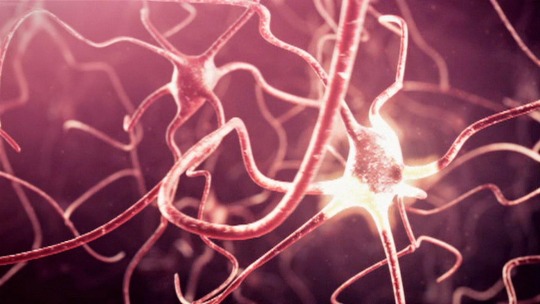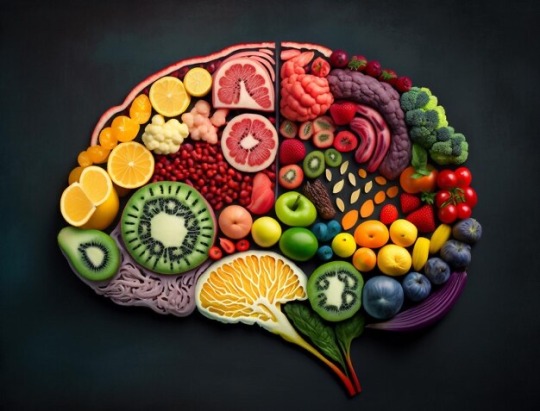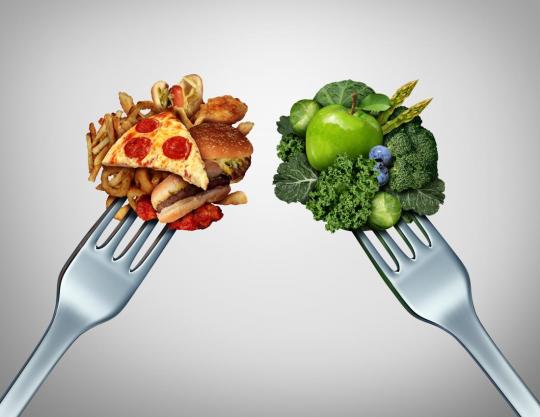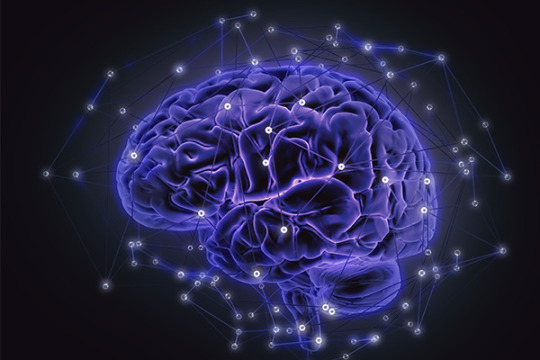#weight loss remedies
Explore tagged Tumblr posts
Text

Best Ayurvedic Treatment for Obesity..
#obesity#body mass index#ayurvedic#ayurvedic remedies for weight reduction and obesity#ayurveda treatment for over weight#ayurveda weight loss best treatment#weight gain#weight loss remedies#overweight#obesity treatment#ayurveda#body fat#home remedies#health determinants#overeating#public health
0 notes
Text
Testosterone Replacement Therapy (TRT) is a medical treatment designed to address low testosterone levels in men. This comprehensive guide explores the benefits, potential risks, and the overall impact of TRT on health and well-being. Learn about the different methods of administration, who might need TRT, and what to expect during the treatment process. Whether you're considering TRT or just want to know more, this article provides essential information to help you make an informed decision.
#core care for life#health care services#Core Care Concierge Service#weight loss remedies#semaglutide injection#ozempic#best ed meds#Male erectile disorder#family care health center#senior Citizin health clinic#family health clinicCore health crae
0 notes
Text
Curd With Raisins - An Age-Old Weight Loss Remedy By Celeb Nutritionist Rujuta Diwekar
The consciousness around health and fitness has risen immensely, especially in the post-pandemic era. We are all quite well aware of what we are eating and drinking, and the impact it has on our body and health. Gone are the days when we would be snacking endlessly between our meals. Mindless bingeing has given way to mindful eating, and rightly so. If you are looking for ways to get fit and…

View On WordPress
#curd with raisin#raisin curd#rujuta diwekar#rujuta diwekar tips#rujuta diwekar tips for diabetes#weight loss remedies
0 notes
Text
Barbara O'Neill on weight loss & coconut oil🤔
#pay attention#educate yourselves#educate yourself#knowledge is power#reeducate yourself#reeducate yourselves#think about it#think for yourselves#think for yourself#do your homework#do some research#do your own research#ask yourself questions#question everything#for your health#health tips#healthy living#weight loss#natural remedies
454 notes
·
View notes
Text
How to Lose Weight Without Side Effects: A Safe and Natural Approach
Losing weight may be a adventure full of challenges, mainly while looking to avoid the capability side consequences associated with restrictive diets or quick-restore weight reduction drugs. Fortunately, it is feasible to shed the ones extra pounds without compromising your fitness. Here are a few powerful, safe, and herbal ways to reap sustainable weight reduction without facet results.

1. Adopt a Balanced Diet
Rather than choosing extreme calorie restriction, focus on a balanced food regimen that provides vital vitamins. Include complete foods like end result, veggies, lean proteins, complete grains, and healthful fat. Avoiding processed ingredients and sugary drinks allows in accomplishing a caloric deficit without ravenous the body.
2. Focus on Portion Control
Practicing element manipulate is prime to dealing with calorie intake with out the need to surrender your favorite foods. Use smaller plates, pay attention to starvation cues, and eat slowly to keep away from overeating. Mindful consuming can help you feel happy with smaller quantities.
3. Stay Hydrated
Drinking water not simplest boosts metabolism but additionally allows in suppressing appetite certainly. Staying hydrated continues your power stages up, aids digestion, and supports your body's herbal fat-burning procedures. Try ingesting a pitcher of water before each meal that will help you sense fuller.
Avoid Rapid Weight Loss Methods
While fad diets and weight reduction tablets may also promise brief consequences, they frequently result in rebound weight advantage and unwanted facet outcomes. Aim for a slow weight reduction of 1-2 pounds per week to make sure sustainable, facet-effect-free progress.
Conclusion
Losing weight without side effects is achievable by focusing on sustainable lifestyle changes.. With a balanced approach that includes healthy ingesting, ordinary bodily pastime, stress control, and good enough rest, you may reach your weight reduction dreams thoroughly and preserve your development within the long time. For a more fit you, recall incorporating those natural strategies and enjoy the adventure towards a healthier life-style.
#tips to lose weight naturally#natural diet for weight loss#herbal home remedies for weight loss#home remedies for weight loss#holistic diet plan for weight loss#how to lose weight fast naturally and permanently#lose weight without side effects#Weight Loss Tips and Strategies#magnesium chloride for weight loss#magnesium supplements for women#magnesium supplements for food#benefits of taking magnesium at night#best supplements for weight loss female#how to lose weight forever#weight loss diet chart for female#usa
3 notes
·
View notes
Text
The Wonder Drink: Fenugreek Water for Health and Wellness

Fenugreek water is particularly beneficial for boosting immunity. It is rich in antioxidants and anti-inflammatory compounds that help strengthen the body's defense system. Regular consumption of fenugreek water can help ward off common infections and promote overall well-being.
For Mor Information Visit Here
#health tips#Fenugreek Water Benefits#Immunity Booster Drink#Drink#Fenugreek for Diabetes#Weight Loss Drink#Digestive Health Drink#Fenugreek for Women#Breast Milk Production#Natural Remedies#Ayurvedic Drink#Fenugreek Seeds Benefits
2 notes
·
View notes
Text
#weight#loss#diet#failure#remedies#mvouchercodes#blackfriday#home & lifestyle#weight loss diet#@n@ diet#low cal diet#tw 3d diet#weight loss#dieting#diet plan#fat loss
2 notes
·
View notes
Text
Nervous System Wellness 101: How to Protect and Maintain Your Nerves

Caring for your nervous system is crucial for maintaining overall health and well-being. Here are some essential tips on how to take care of your nerve system:
1. Eat a Balanced Diet: A healthy diet plays a vital role in supporting your nervous system. Ensure that you consume a variety of nutrient-dense foods, including fruits, vegetables, whole grains, lean proteins, and healthy fats. These provide essential vitamins, minerals, and antioxidants that support nerve function and protect against oxidative stress.
2. Stay Hydrated: Proper hydration is essential for optimal nerve function. Drink an adequate amount of water throughout the day to keep your nerves hydrated and to facilitate the transmission of nerve signals.
3. Exercise Regularly: Physical activity not only benefits your muscles and cardiovascular system but also supports your nervous system. Engage in regular exercise, such as walking, jogging, swimming, or yoga, to improve blood circulation, reduce inflammation, and promote the health of your nerve cells.

4. Prioritize Sleep: Quality sleep is crucial for nerve cell regeneration and repair. Aim for 7-9 hours of uninterrupted sleep each night to ensure your nervous system gets the rest it needs to function optimally.
5. Manage Stress: Chronic stress can negatively impact your nervous system. Implement stress management techniques, such as deep breathing exercises, meditation, yoga, or engaging in hobbies you enjoy. Find what works best for you to reduce stress levels and support your nerve health.
6. Protect Yourself from Toxins: Exposure to environmental toxins can harm your nervous system. Minimize your exposure to harmful chemicals, pollutants, and toxins. Use natural cleaning products, avoid smoking and excessive alcohol consumption, and limit your exposure to pesticides and other harmful substances.

7. Maintain a Healthy Weight: Obesity and excess body weight can increase the risk of nerve damage and nerve-related conditions. Maintain a healthy weight through a balanced diet and regular exercise to reduce the strain on your nerves and support their optimal function.
8. Protect Your Head: Traumatic brain injuries can have a severe impact on your nervous system. Take precautions to prevent head injuries, such as wearing seatbelts, using helmets during sports or other activities with a risk of head injury, and practicing safe driving habits.
9. Stay Socially Active: Engaging in social activities and maintaining strong social connections can have a positive impact on your nervous system. Social interaction and support help reduce stress and promote emotional well-being, which in turn benefits your nerve health.
10. Consult a Healthcare Professional: If you experience any persistent or concerning symptoms related to your nervous system, such as numbness, tingling, weakness, or changes in coordination, it's important to seek medical advice. A healthcare professional can evaluate your symptoms, provide a proper diagnosis, and guide you on the best course of action.
Remember, taking care of your nervous system is an ongoing process. By adopting these habits and making conscious lifestyle choices, you can support the health and function of your nerve system, leading to overall improved well-being.
Boost Your Nerve System Health with These Fantastic Supplements

When it comes to maintaining a healthy nerve system, sometimes our bodies need a little extra support. That's where supplements come in! These fantastic helpers can provide the nutrients and compounds our nerves need to stay in tip-top shape. If you're looking to give your nerve system a boost, here are some of the best supplements you should consider. Let's dive in and discover the wonders they can do for your nerve health!
1. Vitamin B12: The Nerve System's Best Friend
Vitamin B12 is a true superstar when it comes to nerve health. It plays a crucial role in the formation of myelin, the protective coating around nerve fibers. By ensuring adequate B12 levels, you can support proper nerve function and reduce the risk of nerve damage. Consider adding a B12 supplement to your routine, especially if you follow a vegetarian or vegan diet, as B12 is primarily found in animal-based foods.
2. Alpha-Lipoic Acid: The Antioxidant Defender
Alpha-lipoic acid (ALA) is a powerful antioxidant that helps protect nerve cells from damage caused by free radicals. It also supports healthy blood sugar levels, which is important for nerve health. ALA has been shown to alleviate symptoms of neuropathy, a condition characterized by nerve damage. Including an ALA supplement in your regimen can provide that extra boost your nerves need to stay healthy and resilient.

3. Omega-3 Fatty Acids: Nourishment for Your Nerves
Omega-3 fatty acids, such as DHA and EPA, are not only beneficial for brain health but also for your nerves. These healthy fats provide the building blocks for nerve cell membranes and support proper nerve signaling. Incorporating an omega-3 supplement, like fish oil or algae oil, can help nourish your nerves and promote their optimal function.
4. Magnesium: The Calming Mineral
Magnesium is an essential mineral that plays a vital role in nerve function and relaxation. It helps regulate neurotransmitters and supports the transmission of nerve signals. Low magnesium levels have been associated with increased nerve excitability and muscle cramps. By adding a magnesium supplement to your routine, you can promote a calm and healthy nerve system.
5. Curcumin: The Golden Spice for Nerves
Curcumin, the active compound found in turmeric, has powerful anti-inflammatory and antioxidant properties. It has been shown to reduce nerve inflammation, relieve pain, and support nerve regeneration. Including a high-quality curcumin supplement can be a game-changer for your nerve health, providing natural support and relief.
Conclusion: Your nerve system deserves the best care, and these incredible supplements can provide the extra nourishment and support it needs. Remember, it's always a good idea to consult with a healthcare professional before starting any new supplements, especially if you have underlying health conditions or are taking other medications. So, go ahead and give your nerves the love they deserve by incorporating these fantastic supplements into your daily routine. Your nerve system will thank you with improved function, resilience, and overall well-being!

#healthy#health#nutrition#nutritious#healthcare#antioxidants#healthy diet#weight loss diet#low cal diet#diet plan#natural remedy#tips#latest news#headlines today news#news#world news#breaking news#headline news#brainstorm
16 notes
·
View notes
Text
No More Doctor Drama: How This Book Transformed My Family’s Health

Imagine A Scenario: you're miles away from civilization, a sudden illness strikes your loved one, and reaching a doctor seems impossible. Panic sets in. But what if there was a trusted guide filled with practical knowledge to help you navigate such a situation?
The Home Doctor: Practical Medicine for Every Household" is more than just a first-aid manual; it's a lifeline for anyone who wants to be prepared for the unexpected. Here's why you should consider adding it to your family's preparedness kit.
Be Your Own Health Hero: This book equips you with the skills and knowledge to handle common ailments at home. From treating wounds to identifying signs of infection, "The Home Doctor" empowers you to take charge of your family’s well-being during emergencies.

Knowledge is Power: Forget relying on unreliable internet searches in a crisis. "The Home Doctor" provides clear, concise instructions, with diagrams and step-by-step procedures, so you can act with confidence, even under pressure.
Beyond Band-Aids: This book dives deeper than just basic first-aid. It includes information on natural remedies, building a well-stocked home pharmacy, and even creating a disaster preparedness plan."The Home Doctor" isn't a replacement for professional medical care, but it's an invaluable resource for anyone who wants to take a proactive approach to their family's health. It's peace of mind you can hold in your hands.
>>Ready to take control of your health and well-being? Don’t wait for an emergency to strike. Get your copy of "The Home Doctor" today and empower yourself with the knowledge to become your family’s health hero!
#health & fitness#health and wellness#health tips#health care#wellness#health products#medicine#healthylifestyle#home doctor#home tips#home remedies#secret recipe#weight loss#weight goals#losing weight#diets#mental health#positive mental attitude#holistic health#holistic wellness#holistic medicine
2 notes
·
View notes
Text
Berberine Insuline Herb 2024 | Benifits of Berberine 2024 | Berberine Insuline Herb review 2024
#Berberine benefits and reviews#Berberine for diabetes reviews 2024#“Berberine for weight loss reviews 2024”#“Berberine supplement dosage and results”#“Berberine supplement safety and side effects”#“Berberine supplement user testimonials 2024”#“Berberine supplement comparison 2024”#“Berberine vs. other natural remedies 2024”#Best berberine supplements 2024
2 notes
·
View notes
Text

#pcos#chronic illness#polycystic ovarian syndrome#pcos symptoms#remedies#PCOS weight loss#I’ve started on some of these#I’m not perfect about it#but I think cutting back has helped inflammation a lot#PCOS diet#trying to feel better
12 notes
·
View notes
Text
Finding effective weight loss solutions can be a game-changer in your journey towards a healthier lifestyle whether you’re looking to shed a few pounds or make a significant transformation, the right approach can make all the difference. From personalized meal plans and exercise routines to cutting-edge supplements and behavioural coaching, numerous options are available to meet your specific needs.
#Core care health#core care life treatment center#weight loss treatments#weightloss clinics#weight loss remedies#Semaglutide#semaglutide weight loss#semaglutide injection#ozempic weight loss#ozempic#semaglutide
0 notes
Text
How Many Calories Should You Eat to Lose Weight?

Losing weight can be a challenging journey, but understanding the role of calorie intake is crucial.
In this article, we will explore the topic of calorie consumption for weight loss and provide valuable insights for both men and women who are looking to shed those extra pounds.
By the end of this article, you will have a clear understanding of how many calories you should eat to reach your weight loss goals.
I. Understanding the Basics of Weight Loss

The relationship between calorie intake and weight loss
The concept of a calorie deficit and its importance
II. Determining Your Calorie Needs

The role of basal metabolic rate (BMR) in weight loss
Factors influencing your daily calorie expenditure
Calculating your total daily energy expenditure (TDEE)
III. The Science of Safe and Sustainable Weight Loss

Setting realistic weight loss goals
The recommended rate of weight loss for optimal health.
The importance of gradual changes in calorie intake
IV. Tailoring Calorie Intake for Weight Loss

Different approaches to calorie restriction (e.g., fixed calorie intake, percentage-based reduction)
Adjusting calorie intake based on individual factors (e.g., activity level, age, gender)
V. Quality of Calories Matters

Emphasizing nutrient-dense foods for satiety and overall health
Balancing macronutrients (carbohydrates, proteins, and fats) for effective weight loss
The role of fiber in controlling hunger and aiding weight loss
VI. Monitoring and Adjusting Calorie Intake

Tracking calorie consumption using food diaries or mobile apps
Recognizing plateaus and making necessary adjustments
Seeking professional guidance when needed
VII. The Psychological Aspect of Calorie Intake

Developing a healthy relationship with food and mindful eating
Overcoming emotional eating and cravings.
Celebrating non-scale victories and focusing on overall well-being
Finding the right balance of calorie intake for weight loss is a key component of a successful weight loss journey.
By understanding your individual needs, making mindful food choices, and seeking sustainable progress, you can achieve your weight loss goals while prioritizing your health and well-being.
Remember, consulting with a healthcare professional or registered dietitian is always recommended before making any significant changes to your diet or exercise routine.
3 notes
·
View notes
Text
The Ultimate Diet Chart for Weight Loss

you're looking for an easy and effective way to lose weight, you've come to the right place. In this blog post, we will cover the ultimate diet chart for weight loss.
Read More...
#diet plan#how to loose weight#weight loss#ultimate diet plan#healthwealth1307#health tips#healthy lifestyle#health is wealth#keto diet#home remedies
3 notes
·
View notes
Text
How to Lose Weight Fast in 2 Weeks: 10 kg Challenge
Read How to lose weight fast in 2 weeks with step by step
Losing weight can be a challenge, especially when you have a deadline in mind. Whether it’s for a special event or to boost your confidence, the desire to lose weight quickly is common. The goal of losing 10 kg in 2 weeks may seem unrealistic, but with the right approach, it is possible. we will explore the most effective and safe ways to lose weight fast in 2 weeks, helping you to achieve your…

View On WordPress
#aim weight lose#Body positivity and weight loss#Diet plans to lose weight#Foods that help you lose weight#Healthy habits for weight loss#How to stay motivated to lose weight#Lose Weight#Mental health and weight loss connection#Natural remedies to lose weight#Supplements for weight loss#weight lose 10 kg#Weight loss myths debunked#Workouts to lose weight fast
2 notes
·
View notes
Text
Exploring the Surprising Effects of Sex on Brain Boost

When it comes to boosting your brain function, you might be surprised to learn that a little romance can go a long way. Yes, we're talking about the intimate and pleasurable act of sex. Not only does it bring joy and connection, but engaging in sexual activity can also have some surprising benefits for your brain. So, let's delve into the fascinating connection between sex and brain boost and discover how this pleasurable experience can elevate your cognitive abilities.
1. Natural Stress Buster: Clearing the Mental Fog:
When it comes to reducing stress, sex can be a powerful ally. Engaging in sexual activity releases endorphins, the feel-good hormones that flood your brain with a sense of calm and happiness. By decreasing stress levels, sex helps clear the mental fog and allows your brain to function more effectively. So, embrace the intimacy and let your worries melt away for a clearer and sharper mind.
2. Boosting Cognitive Function: Sharpness Between the Sheets:
Believe it or not, sex can actually enhance your cognitive function. During sexual activity, increased blood flow to the brain stimulates the production of new neurons, improving overall brain health. Additionally, the release of hormones like oxytocin and dopamine during sex can enhance memory, focus, and creativity. So, next time you're looking for a mental boost, consider engaging in some intimate time with your partner.
3. Mood Elevation: The Power of Pleasure:
A positive mood is key to optimal brain function, and what better way to elevate your mood than through the pleasure of sex? Sexual activity triggers the release of various hormones and neurotransmitters, including serotonin, which is involved in regulating mood. The afterglow of a satisfying sexual encounter can leave you feeling happier, more content, and ready to take on mental challenges with a positive mindset.

4. Improved Sleep: Pillow Talk for Better Brain Health:
Quality sleep is essential for cognitive function, and sex can play a role in improving your slumber. Engaging in sexual activity before bedtime helps release tension and promotes relaxation, making it easier to fall asleep and achieve a more restful night's rest. By prioritizing intimacy in your evening routine, you're setting the stage for improved brain health and sharper mental performance.
5. Intimacy and Emotional Connection: Nurturing the Brain and Heart:
Last but certainly not least, the emotional connection fostered through sex and intimate relationships has profound effects on brain health. Feeling loved, secure, and emotionally connected releases hormones that reduce stress and anxiety, improving overall brain function. The bond created through intimacy provides a foundation for mental well-being and supports cognitive abilities.
Conclusion: When it comes to boosting your brain function, don't overlook the remarkable benefits of sex and intimacy. From reducing stress and improving cognitive function to elevating mood and promoting better sleep, engaging in sexual activity can give your brain a much-needed boost. So, prioritize intimate connections, embrace pleasure, and let your brain reap the rewards of this pleasurable and beneficial experience. Remember, communication and consent are essential ingredients for a fulfilling and healthy sex life. So, let the intimate connection between sex and brain boost be a reminder to nurture both your physical and mental well-being. Enjoy the journey and let your brain soar to new heights of clarity and happiness!
Beyond the Bedroom: Exploring Activities That Boost Brain Function

While sex is often celebrated as a pleasurable activity that can enhance brain function, there are plenty of other engaging pursuits that offer similar benefits. In fact, a wide range of activities can help boost your brain power and stimulate cognitive function. So, let's dive into a world of diverse and enjoyable pastimes that have the potential to elevate your mental abilities.
1. Exercise: A Workout for the Mind:
Physical exercise isn't just beneficial for your body; it also has a profound impact on your brain. Engaging in regular aerobic exercise, such as running, swimming, or dancing, increases blood flow to the brain, promotes the growth of new neurons, and enhances cognitive function. Whether it's a brisk walk in nature or a sweat-inducing gym session, make exercise a part of your routine to give your brain a workout it deserves.
2. Mindful Meditation: Finding Clarity Within:
Meditation is like a mental gym for your brain. By practicing mindfulness meditation, you can train your brain to focus, reduce stress levels, and improve overall cognitive function. Regular meditation has been shown to increase gray matter density in brain regions associated with attention, memory, and emotional regulation. Dedicate a few minutes each day to sit in stillness, focus on your breath, and watch your brain thrive.
3. Learning a New Skill: Expanding Your Cognitive Horizons:
When you step out of your comfort zone and challenge yourself to learn a new skill, your brain lights up with excitement. Learning stimulates the growth of new connections between brain cells, improving cognitive flexibility and memory. Whether it's playing a musical instrument, mastering a foreign language, or trying your hand at painting, the process of acquiring new knowledge strengthens your brain and enhances its ability to adapt and learn.

4. Puzzles and Brain Games: Teasing Your Neural Networks:
Give your brain a delightful workout by engaging in puzzles, brain teasers, and strategy games. Activities like crosswords, Sudoku, chess, and jigsaw puzzles challenge your cognitive skills, improve memory, and enhance problem-solving abilities. These mentally stimulating games engage various parts of your brain, creating new connections and keeping your mind sharp.
5. Social Connections: Brain Boost Through Human Interaction:
Never underestimate the power of social connections in boosting brain function. Engaging in meaningful conversations, spending time with loved ones, and participating in group activities not only provide emotional support but also stimulate cognitive processes. Social interaction activates different areas of the brain, improves memory retention, and enhances overall brain health. So, prioritize social connections and let your brain thrive in the company of others.
Conclusion: While sex is indeed a pleasurable activity that can stimulate brain function, it's essential to recognize that there are numerous other ways to give your brain a boost. From physical exercise and mindful meditation to learning new skills, puzzles, and social connections, these activities engage the brain, improve cognition, and enhance overall mental well-being. So, explore the diverse array of brain-boosting activities available, find what ignites your passion, and embark on a journey of continuous cognitive growth. Your brain will thank you as it flourishes in the realm of new experiences and mental stimulation. Enjoy the process and let your brain reach new heights of brilliance!
#healthy#health#self healing#heartbreak#healthcare#help#headlines today news#headline news#healthy diet#low cal diet#latest news#weight loss diet#long reads#love#life#liveblogging#nutrition#business news#natural remedy#nutritious#breaking news#world news#news#money#nature#beauty#beautiful#blog#books#black and white
4 notes
·
View notes